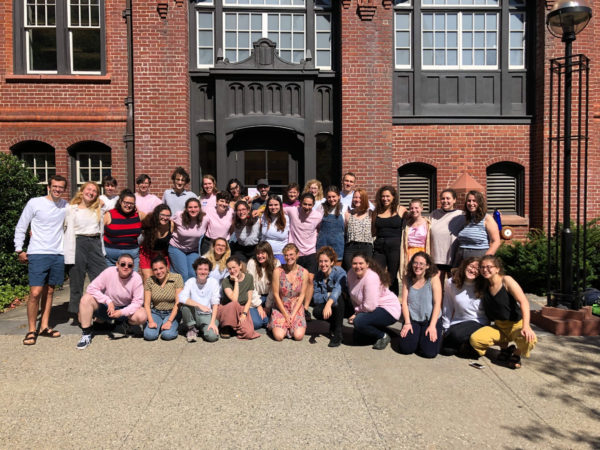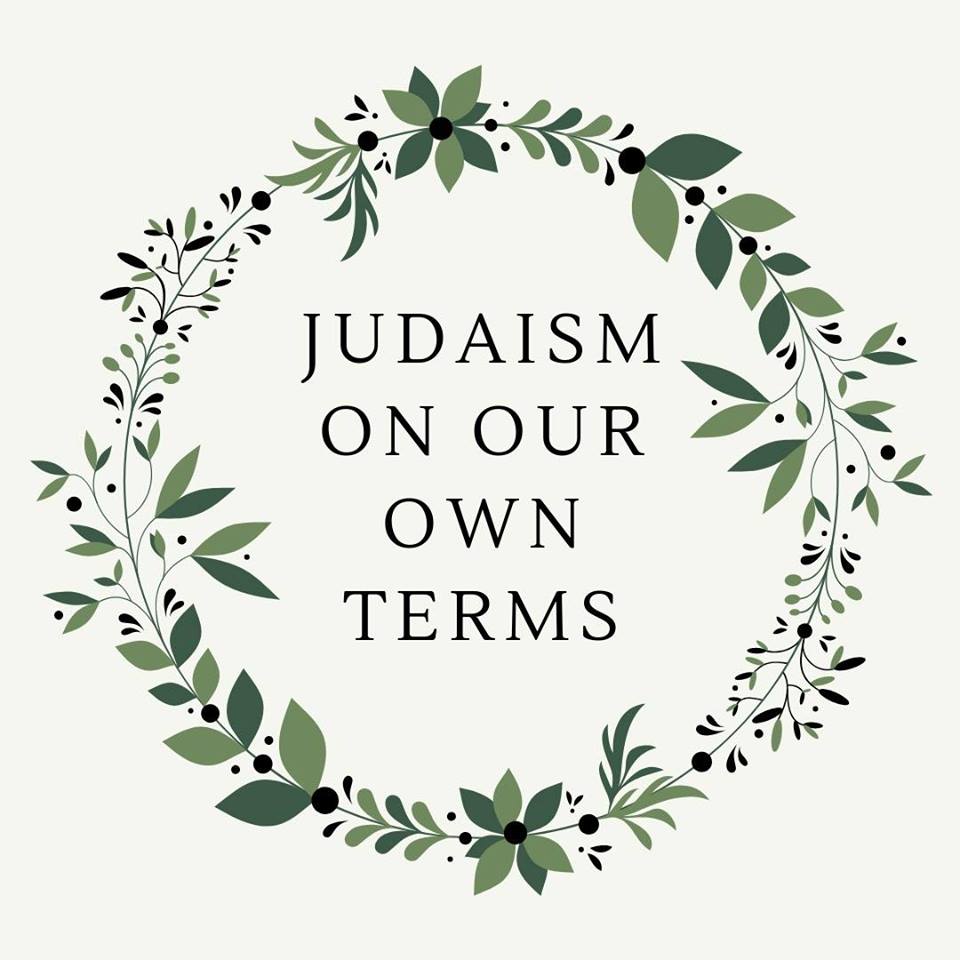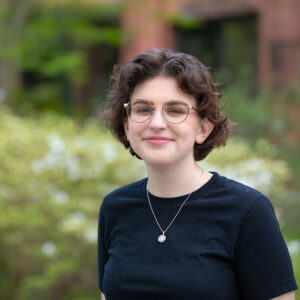Judaism On Our Own Terms (JOOOT), a network of college students attempting to build Jewish communities without major donor-fueled organizations like Hillel and the Jewish Federations, has only existed since last April. The weekend of September 16th, they held their second-ever national conference on the campus of Brown University.
According to one attendee, a former youth-group kid, the event had a similar feel to a B’nai Brith Youth Organization retreat, with a group of about 80 college students from 27 different schools sitting in a circle on the floor. There was singing – a lot of singing. Progressive Judaism can sometimes feel like a giant a cappella group.
The opening prayer grounded attendees in the spirit of their gathering: “Baruch atah hashem, eloheinu ruach ha’olam, asher kidshanu b’mitzvotav v’tzivanu k’asoh b’tzorchei hatzibur. Blessed are you, Spirit of the Universe, who makes us holy through the commandment to engage in this work for the sake of the community.” The group of 100 students – some of whom stumbled through the transliterated Hebrew, others of whom read it as their first language – were there to do exactly that: to work towards redefining what is holy and spiritual for their community.
There are currently at least 14 student groups that are part of the JOOOT network. They vary in size and in scope. Many, like Brown University’s Friday Night Jews, are entirely apolitical, while others, like Harvard Law School’s Alliance of Progressive Jews, are not. Mostly, though, they serve as gathering places for students who, for one reason or another, feel alienated from groups like Hillel – or are just looking for less supervised and more organic Jewish community on campus.
Students from all over the country, some coming to Rhode Island from as far as Los Angeles, gathered at Brown for the conference. The group spent most of the next two days talking about what it means to be Jewish, and how to build a world in which Jewish students don’t have to either join Hillel or feel alienated from their spiritual and communal identities at college.
JOOOT should not, however, be misconstrued as a direct challenge to Hillel: they say they are offering an alternative option. At the September conference, in fact, several students who are deeply involved with Brown’s Hillel were in attendance. Jenna Israel, for example, is a Brown student who serves as Vice President of Social Justice and Arts for Brown/RISD Hillel, and regularly attends Brown Friday Night Jews (FNJ) events.
“Brown is kind of special in regards to FNJ and Hillel having a great relationship, and we’re really proud of that,” she said. “There’s a lot of overlap in student leadership and involvement between the two groups.”
For Israel, though, it’s mostly a matter of having more choices for her Jewish communal engagement.
“It’s really great to be able to have a lot of options on Friday nights,” she said. “I usually go to services at Hillel, but if there’s FNJ I’ll hop over there after services. I like being able to be Jewish in a lot of different ways in one night.”
JOOOT takes no official position on most political topics, though it does oppose Hillel’s Standards of Partnership – the document that prohibits campus Hillels from collaborating with any groups, such as Students for Justice in Palestine or Jewish Voice for Peace, which endorse the Palestinian-led Boycott, Divestment, Sanctions (BDS) movement.
Hillel International did not offer comment on the Standards of Partnership. Regarding JOOOT as a whole, Matt Berger, Hillel’s vice president of Communications, wrote to New Voices, “Hillels around the country are focused on empowering students to create programs based on their Jewish values, with the support of our professionals. Many of our most successful programs have been conceived and led by our student leaders and we encourage all students to design and participate in Hillel experiences that reflect their communities.”
JOOOT’s five organizing principles, which can be found on their website, include this line: the network exists “to protect and empower Jewish students facing increasingly common attempts to silence their voices, perspectives, and political opinions — especially regarding Israel/Palestine — by working against attempts to intimidate students.” This meant that, while there were Hillel representatives at the conference, some students came representing their school’s Jewish Voice for Peace chapters, too.

This gathering differed from the first JOOOT conference in both its size and purpose. This time, one of the main topics was how to make these communities sustainable. For groups like Occidental’s Jewish Student Union and the Claremont Consortium’s Nishmat, creating a Jewish community that meets regularly and helps support students as they go through college can lead to burnout for leaders.
Trying to make these spaces, as the JOOOT mission statement says, “democratically-run Jewish campus organizations by and for students within which students have the primary authority to determine leadership structure” often means that the work of the organization falls on only a few students. These students are then expected to somehow make up for the general lack of rabbinical guidance and donor support on their own.
So, many of those students are turning to the networks they create through JOOOT to avoid burnout, and to share resources. As Tal Frieden of Brown University, one of the JOOOT founders, put it “You have to know what feels good. You have to know what rejuvenates you.” Several breakout groups at the conference discussed methods of passing on leadership in these organizations so any one individual does not end up giving their whole life to it.
Many of the students at the conference, though it was nominally about building independent Jewish communities at colleges, came from schools where there is little or no Jewish community at all, while other students at the conference, like Frieden, were heavily involved in other Jewish progressive movements. This necessity of making community structures that students can rely on for support in their organizing was the backdrop of the conversations at the JOOOT conference, between song workshops, discussions of Jewish activist history, and activities focused on creating spaces for Jews of Color and eliminating white supremacy in Jewish spaces.
May Ye, a rabbinical student with Reconstructing Judaism, led a workshop on racial equity in Jewish spaces. Ye opened the workshop with a demand for Jewish organizers. “This should be your very first question: Who’s in the room? You can’t have assumptions. So, you must ask who’s in the room. Then you ask everyone: What’s your practice? What’s your minhag?”
Natalie El-Hai, a student at Occidental College, also noted the importance of upholding all forms of practice as important when creating alternative community. Failure to ask who’s in the room, El-Hai suggested, undermines the whole project of creating new and independent Jewish communities. “How are we supposed to defend ourselves as a Jewish community if we don’t recognize ourselves as not just an Ashkenazi community?” One way of doing that could be through ritual: Ye taught attendees a Persian Jewish traditional song, and invited them to ask each other what parts of their individual heritages they’d like to bring to the table.
The conference closed with a loud and raucous dinner and a quiet, contemplative Havdalah ceremony. Dozens of students departed for their various schools.
Elisheva Goldberg, a Brown sophomore who was one of the lead coordinators of the conference, reflected on the experience. “I’d been working to find any young Jews who were interested…and it all stayed very abstract to me when I was doing logistical work. And then suddenly there I was in the Pembroke field house singing and praying with a hundred people who we’d gathered from across the country.”
For Goldberg, this grassroots gathering, with its focus on shared decision-making and deep pluralism, felt like a fundamental shift in what Jewish college community looks like. “I could sense the energy in the room, and it felt like something big was getting started.”
Editor’s note: Sophie Hurwitz attended the conference as an unaffiliated student from Wellesley College, and co-led a group discussion on bringing Judaism into organizing work.

